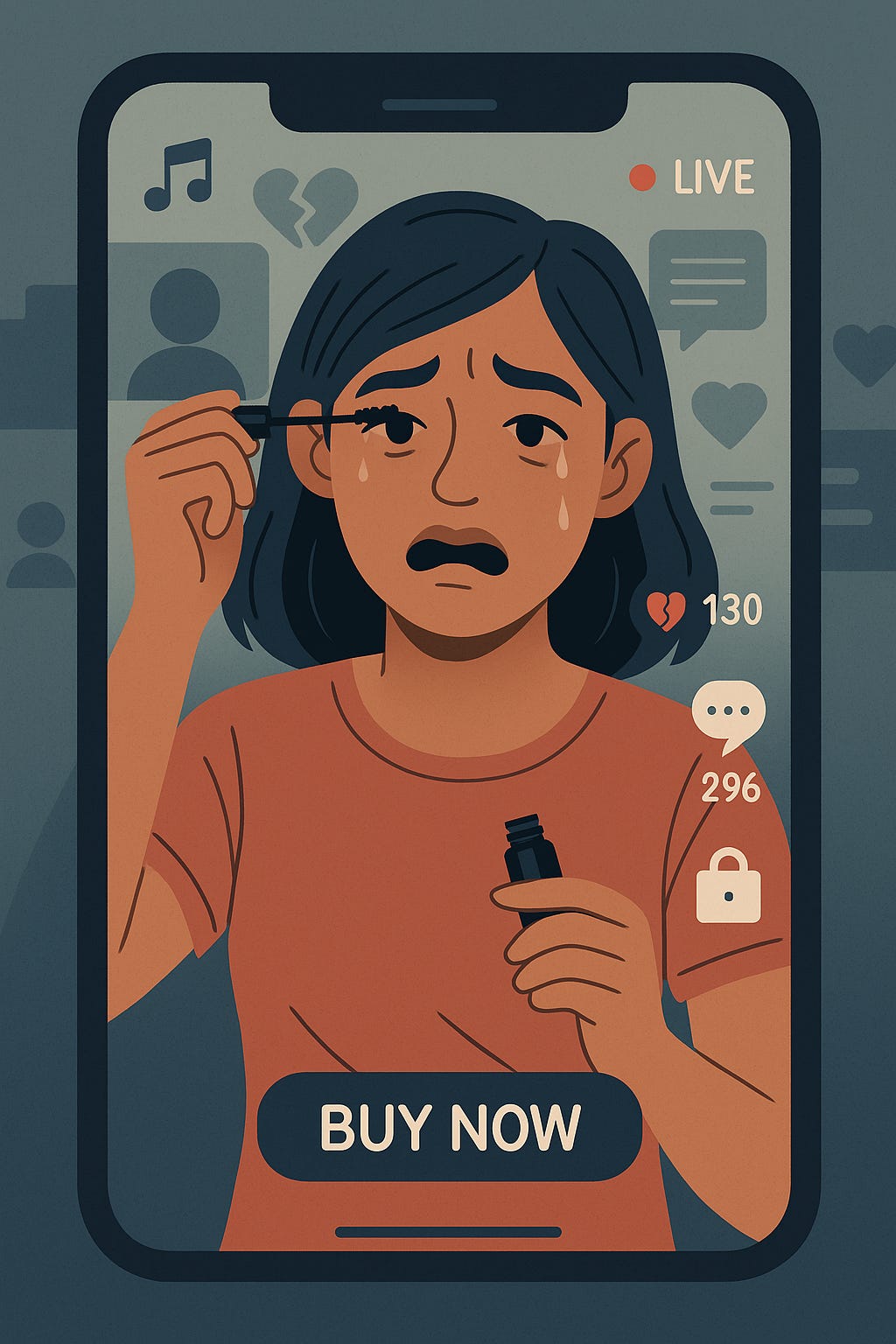Trust, Interrupted: TikTok Shops and the Mirage of Intimacy
Para-social trust fuels impulse buys, but at what cost? Explore how emotional intimacy replaces real vetting in TikTok Shop’s booming commerce model.
DISCLAIMER: I am using SHE/HER a lot in this one. I am very aware that Beauty Influencers, in particular, come in all shapes, sizes, and genders. Please read SHE/HE/THEY—it was just getting super clunky in the text…
The Scale Behind the Illusion: TikTok Shop by the Numbers
The power of para-social trust isn’t just cultural, it’s economic. TikTok Shop’s rapid ascent has transformed it from a quirky feature into a global e-commerce juggernaut.
In 2024 alone, TikTok Shop generated $33.2 billion in global gross merchandise value (GMV), doubling its previous year’s performance. The U.S. led this surge, contributing a staggering $9 billion, a 650% increase just 16 months after its September 2023 launch in the American market.
Americans now spend over $32 million per day on TikTok Shop.
Source: Influencer Marketing Hub, 2025
The top-performing category was Beauty and Personal Care, which accounted for $2.49 billion in U.S. GMV, over 22% of total sales. Not coincidentally, this category is also the most saturated by para-social influence and “get ready with me” content that blurs the line between daily ritual and sponsored intimacy.
Where are those purchases coming from?
58% via short-form videos
32% through the in-app Shop
10% via live streams
This distribution matters. It shows that emotionally loaded, highly compressed content, not detailed product listings, drives most conversions.
In short, TikTok’s most powerful conversion engine isn’t product data.
It’s perceived proximity.
TikTok Shops and the Mirage of Intimacy
“She seems real. I’ll buy the skincare.”
This isn’t a product review. It’s a para-social transaction; a trust purchase, built not on ingredients, credentials, or certifications, but on perceived intimacy. She’s not a dermatologist. She’s not an esthetician. She’s a stranger you follow on TikTok who talks to the camera like your friend. And you trust her, because you feel like you know her.
Welcome to the mirage of intimacy in modern commerce, where influence feels like evidence, vibes replace vetting, and trust is built in the DMs, not the lab.
The Rise of Para-Social Trust
Para-social relationships were once reserved for celebrities. You watched them from afar. They didn’t know you existed. But you felt connected.
Today, the dynamic is flatter. You follow creators who talk to you, not at you. They share their routines, their breakups, their Amazon hauls. They cry on camera. They put on mascara while talking about childhood trauma. They stitch your comments. They like your replies.
The result? Emotional proximity masquerading as earned trust.
When that creator links to a product, especially through TikTok Shop, it bypasses the logic gate. You buy not because the serum is peer-reviewed, but because she uses it. And you like her. And you trust her.
Intimacy is Not Verification
The most dangerous thing about para-social commerce is that authenticity and accountability aren’t the same.
She may not be paid to promote it, but that doesn’t mean it’s vetted.
She may have used the product only once before it hit your FYP.
She may be honest about her results, but she is unaware of the product’s side effects, sourcing, or safety.
The illusion of intimacy lowers the bar for scrutiny, and TikTok Shop has capitalized on this perfectly. By integrating e-commerce directly into emotionally driven content, they’ve created frictionless purchase pathways built on simulated trust.
You’re not checking certifications. You’re responding to tone, lighting, and voice inflection. And you’re not alone.
Spontaneity Over Due Diligence
The psychology is clear: humans are wired to reciprocate intimacy. When someone discloses personal stories, we reward them with attention, loyalty, and yes, purchases.
This is why the comment section of TikTok Shop often looks like this:
“Omg I don’t need this but I love you so I bought it.”
“You’re so real for this.”
“Added to cart, because you said so.”
There’s no barrier between trust expression and purchase behavior. It’s commerce collapsed into influence, with none of the safety nets we expect from traditional product journeys (third-party reviews, regulation, ingredient analysis).
Trust: Perceived vs. Proven
Here’s the real divide we need to name:
Para-social trust feels safer because it’s framed through personhood. But it’s more volatile because it lacks structure.
There's no recourse when creators go dark, get called out, or quietly stop using the product. There's no customer service line, no professional ethics board, and no verified trail.
When the Mirage Breaks
We’ve seen the fallout. Controversies around:
Heavy metals in wellness powders
Fake reviews coordinated via creator collabs
Influencers quietly scrubbing old promotions after backlash
Consumers are waking up. The same platforms that made intimacy profitable are now watching trust backfire at scale.
But here’s the problem: the infrastructure for vetting hasn't kept up.
We don't have:
Trust scores for influencers
Third-party verification for affiliate claims
Disclosure tools that don’t rely on self-policing
Until we build that, the buyer remains emotionally entangled and structurally vulnerable.
What We Need Next
If we want to build an ethical trust economy inside para-social commerce, we need:
Trust Protocols
Verified disclosures, affiliate tracking, third-party credential overlays.Para-social Firewalls
UI indicators when emotional content transitions into monetized selling. Like a “sponsored intimacy” tag.Reputation as a Composite Score
Not just follower count or likes. But trustworthiness metrics: past collaborations, consistency, complaint ratio.Platform Liability
If TikTok profits from the trust gap, it must account for its failures, vet sellers, ban grifters, and enable refunds.
Closing Thought
Para-social trust isn’t going away. It’s part of the fabric of modern interaction.
But if we continue to blur the line between intimacy and legitimacy, we’ll lose more than a few dollars. We’ll corrode the emotional scaffolding of online connection itself.
Because once trust feels like a trick, even the real ones will feel fake.
Next Up:



